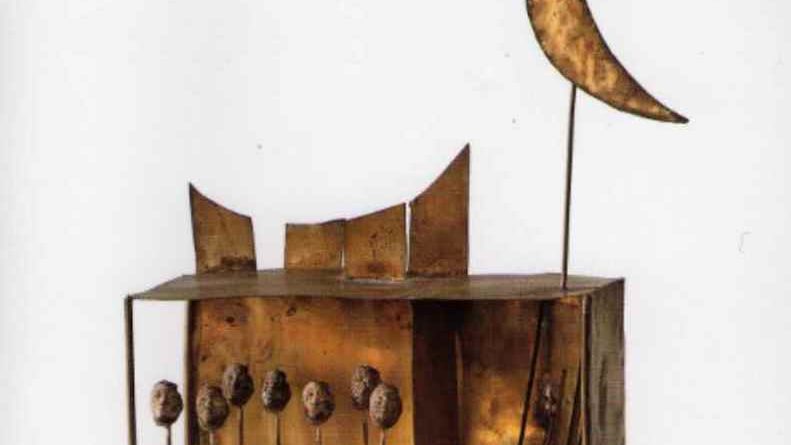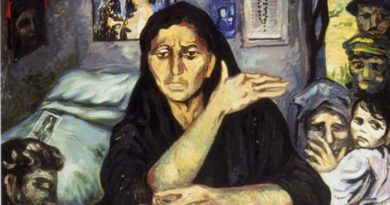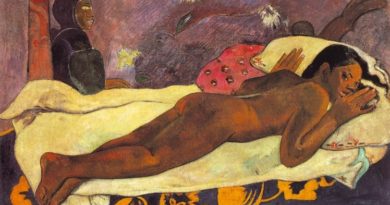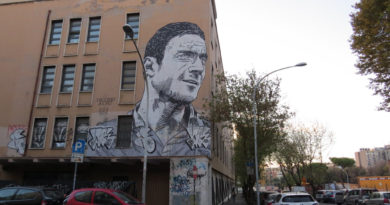Multiple journeys from white void – Se in una notte fantascientifica un viaggiatore (Seconda parte)
di Gouthama Siddarthan
Sf writer, Nebula Award winner, psychologist and Klingonist Lawrence M.Schoen’s response to a comment on the Klingon language that was written last week: I’m sorry you find birthday greetings in Klingon to be annoying. No one seems to care that same phrase “Happy Birthday” is repeatedly repeatedly on people on their birthdays, so why the same phrase in Klingon (which literally translates as “your birthday!”) Be problematic
We respect his valuable opinion. thank you very much.
Lo scrittore di fantascienza, vincitore del Nebula Award, psicologo e klingonista Lawrence M.Schoen replica a un commento sulla lingua klingon pubblicato la settimana scorsa: mi dispiace che i saluti di compleanno in Klingon le risultino fastidiosi. A nessuno sembra interessare che la stessa frase “Buon Compleanno” è ripetuta alla gente più e più volte nei loro compleanni, quindi perché la stessa frase in Klingon (che letteralmente significa “il tuo compleanno!”) sia problematica?
Rispettiamo la sua preziosa opinione. grazie mille. (NdA)
Nella mia infanzia, il gioco “nascondino” (in Tamil si chiama kannaampoochi) era il mio preferito. Nel pieno della mia giovinezza, il mio compagno di gioco era Muthu, appartenente alla comunità dei Vannar.
Mentre aprivo le mani nel kannaampoochi, Muthu tracciava su di loro strani segni, cantando una canzone popolare:
“Kannaam Kannaampoochi
Fra le righe si nasconde la gallina
Nel libro si nascondono sette(3)
Corri fuori a cercarlo
E cattura ciò che è nascosto”
Mentre il mio amico cantava questa canzone, tutti i bambini si disperdevano e si nascondevano in un qualunque posto preferissero. Dopo aver finito di cantare, mi metteva sulla pista, e i suoi segni sulle mie mani servivano come indizi.
In una giornata di gioco, ero sulle tracce dei miei compagni, che si erano nascosti in posti diversi e mi ero stancato della ricerca. Poi capitai su un piccolo viale semicircolare, dopo essere entrato in punta di piedi in diverse cavità. Il viale sembrava stesa su un lato; girando a sinistra e poi a destra, trovai una porta tenuta socchiusa all’altro lato. Aprii la porta per venire accolto da una luce abbagliante e brillante e al rumore cigolante, i pipistrelli si levarono in volo, svolazzando e cadendo, urtando contro l’oscurità. L’odore malefico dei frammenti di letame che avvolgeva l’atmosfera, mi avventai e afferrai una figura in piedi. La figura strinse la presa su di me, l’aroma del gelsomino dalle sue ciocche di capelli mi sopraffece completamente. Era Malli, la mia compagna nel gioco a nascondino. Rimasi interdetto per qualche istante. “Ti sei spaventato?” Sussurrò in un tono inebriante e iniziò a toccare sul mio corpo. L’odore umido del suo viso premuto contro il mio mi lasciò completamente stordito.
Mentre io restavo ancora incredulo e a corto di idee, lei stava giocando sul mio corpo a diversi misteriosi svaghi. Sullo sfondo dell’odore di gelsomino, l’odore piacevole che si diffondeva dal bocciolo di cembro in fiore sulle rive dello stagno e l’odore di sterco nella stanza deserta, noi due ci trasformammo in simboli magici e iniziammo a praticare uno strano passatempo. Un brutto giorno, Malli non si presentò per giocare. Rimasi sconvolto nel sapere che la sua famiglia era migrata da qualche parte.
Scelsi le linee trasversali che si ramificano nei simboli come se fosse l’unico modo per raggiungerla. I punti sopra e sotto le linee mi strizzavano l’occhio come se la mia vita fosse nascosta lì. Durante le vacanze scolastiche, io e Muthu andavamo al dhobi ghat dove gli abiti lavati venivano lasciati ad asciugare e provvedevamo al compito di separare gli abiti con gusto, identificandoli con l’aiuto dei marchi.
Uno spazio particolare trovava luogo nella matrice della ricerca avventurosa dentro il mio gioco preferito di nascondino. Lo stesso tipo di rapimento provato nel separare i “segni da lavandaio” sui diversi indumenti accese un fuoco dentro di me, i simboli di Vannar si ramificarono e turbinarono. Ogni volta che ero estatico ed esaltato mentre disfacevo i nodi di quel puzzle, cioè il gioco di separare i vestiti delle persone imprigionati nei simboli, mi sembrava fosse un viaggio attraverso il labirinto sconcertante dall’odore marroncino, dentro cui avrei incontrato Malli. Stavo vagando nella foresta di simboli, come un pazzo.
Il padre di Muthu soleva dividere i segni del lavandaio e attraverso la spiegazione di ogni singolo simbolo, identificava i volti umani e le immagini nascoste dietro i volti. Quella rara visione che aveva assunto i colori di un linguaggio sconcertante creò in me un intero pianeta di miracoli. Lo strano spazio di quel pianeta, che mi turbinava dentro come un vortice , mi ha insegnato che il segreto della mia vita è affrontare le sfide del puzzle.
Stavo calpestando le cupole e i quadrati dei simboli che vorticavano in linee trasversali. Le mie pupille si sono lacerate nei momenti, a cui lui fece cenno, all’eredità e la cultura dell’umanità che strisciano nello spazio delle linee simboliche. In un pianeta completamente diverso, io e Malli ci inseguivamo, giocando a nascondino, con un linguaggio nuovo e fresco. Ma il tempo mi ha sradicato e mi ha fatto precipitare nella crudele realtà, spingendo la mia fantasia, il gioco a nascondino, il simbolo linguistico e Malli troppo lontano. Avevo dimenticato le canzoni simboliche cantate nel nuovo pianeta, i ricordi di lei e anche il nascondino finché Italo Calvino non mi ebbe catapultato nel mondo della fantasia. Nel romanzo Il castello dei destini incrociati, Calvino creava una possibilità di conversazione attraverso le carte dei tarocchi, creando un nuovo linguaggio.
Quello fu un viaggio indiretto che mi riportò alla visione del mio linguaggio simbolico. Le pupille che il padre di Muthu mi aveva strappato si trasformarono nell’Occhio Egizio di Horus. La mia Malli alias Ludmilla precipita come una cascata simile a Yoruba Opon Ifá, pietra del sole azteco, le pietre predittive chiamate Muthezh nel nostro gergo nativo e le carte dei Tarocchi.
***
Mentre le spiegavo tutta questa roba sui simboli e sui loro significati nascosti, linguistici e culturali, fu talmente rapita dalla mia eloquenza che mi si avventò addosso e mi diede un bacio in un abbraccio avvolgente. Oh mio Dio! Sembrava un viaggio in un mondo di beatitudine.
Questo bacio non era inferiore ai “baci protoplasmatici” descritti da Santiago Ramon y Cajal, il padre spagnolo della moderna neuroscienza.(4)
Nelle settimane seguenti, entrambi iniziammo a creare una nuova lingua basata sui simboli strani che circolavano nello strano gergo dei Vannar. I baci erano in crescita.
Viaggiammo nei villaggi interni del nostro paese e interagimmo con i lavandai. Ludmilla prese appunti. A un certo punto, iniziammo a parlare in quella lingua. Inizialmente ci furono delle incertezze, ma in capo a pochi giorni ci prendemmo la mano e ciò la rese molto eloquente. Il nostro rapporto crebbe d’intensità; e così anche i baci. Tuttavia, osservai una caratteristica particolare. Mentre le labbra di Ludmilla inghiottivano le mie e assaporavano la dolcezza del bacio, sentivo qualcosa di inquieto; qualcosa che non riuscivo a individuare esattamente.
Accadde un’altra cosa particolare. Stava leggendo il libro di Enrico Fermi e perciò le chiesi se le piacesse. Lei arrossì e disse: “Conosci Fermi. Sono ansiosa di conoscere il suo paradosso”.
“Lo conosco solo superficialmente. Non sono così interessato”, dissi e me ne andai.
Un giorno, eravamo a Dhanuskodi, la città divorata dal nostro mare. Stavamo camminando lungo la riva, un tempo devastata da una forte tempesta.
“Sembrava di essere nella Ercolano del mio paese”, disse lei, appoggiandosi alle mie spalle. Mentre i suoi seni mi solleticavano le costole, le dissi poeticamente che l’odore del suolo della sua città gemella, Pompei, si diffondeva nell’aria.
Mentre un vulcano di passioni infuriava dentro di noi, ci precipitammo nella nostra stanza e ci levammo i vestiti. I suoi seni gonfi si sollevavano incontrollabilmente; mi precipitai su di lei e afferrai le sue labbra con le mie. Poi, uno shock mi colpì. Il sapore delle sue labbra non era umano. Il brivido mi corse giù per la schiena. Scendendo lentamente, sprofondai la mia faccia nei suoi seni. In qualche modo pareva ci fosse un mistero. O Dio! Il suo seno sinistro era senza capezzolo, lucido! Mi girava la testa e iniziai a guardarmi intorno. Seni abbondantemente cresciuti! Improvvisamente, la frase del nostro poeta Tamil “Il corpo umano è solo un sacco di venti” mi colpì.(5)
Mi alzai e corsi fuori dalla stanza. Con pensieri perversi che scorrevano nella mia mente, vagai tra le rovine di Dhanuskodi. Mentre le mie gambe si stancavano di camminare, tornai nella stanza, la paura ancora ben decisa a non lasciarmi in pace. Lei non c’era. Solo la mia borsa da viaggio era lì nella stanza. Le sue cose non si vedevano. Sul letto era posata una lettera.
Il messaggio diceva:
“Ti ringrazio per la creazione di una nuova lingua. Ti dico addio. Possiamo incontrarci quando il viaggio nel tempo diventerà possibile. Come regalo di commiato, ti lascio il libro di Enrico Fermi. Firmo col tuo nome preferito – Ludmilla.”
***
Da allora in poi, sto vagando come un pazzo nel labirinto dei simboli. Il libro di Fermi mi ha portato ad un lungo cammino. Dopo un dolce viaggio, un misto tra Albert Einstein, il paradosso di Fermi, la vita extraterrestre, la civiltà su altri pianeti, la fantascienza, Stephen Hawking, e il viaggio nel tempo, ora sto scrivendo questo articolo.
Come posso dimenticare il nome che ruota attorno ai simboli in quella mail anonima? Potete chiedervi se tutto ciò sia accaduto davvero o sia solo frutto di immaginazione. Ma spero che un giorno Ludmilla venga e dica che è tutto vero!
Note:
- “Nostro Signore ha guardato e così ha fatto lei.” Questa frase è stata scritta dal nostro più grande bardo, Kamban, nel suo epico Ramayana nella scena in cui il Signore Rama e la sua consorte Sita si incontrano per la prima volta nella loro vita.
- “Chiunque sia mia madre e tua”; è una famosa frase tratta da un poema in Kurunthogai, un’opera della gloriosa letteratura Tamil Sangam. Il poema celebra l’amore che trascende tutte le barriere come il linguaggio, la razza, l’affinità familiare o altro.
- Sette nella terza strofa, in effetti, significa i sette mondi menzionati nella nostra mitologia.
- I “Baci protoplasmatici” descritti da Santiago Ramon y Cajal, il padre della moderna neuroscienza. L’autore sostiene che ogni neurone nel cervello vuole trovare la sua compagna identica e il doloroso incidente di trovare la sua compagna culmina nel bacio protoplasmatico non meno profondo di quello scambiato in un amore classico.
- Il poeta Tamil, che ha scritto la frase “Il corpo umano è solo un sacco di venti”, è uno dei famosi saggi bardi, noto come Pattinaththar.
Traduzione di Davide Mana
Segue testo in inglese:
From my childhood, the ‘hide-and-seek’ game (in Tamil it is called ‘kannaampoochi’) has been favourite with me. In the prime of my youth, my game companion was Muthu belonging to the Vannar community.
As I spread my hands in the ‘kannaampoochi’, Muthu would inscribe on them weird marks, singing a folk song:
“Kannaam Kannaampoochi
In the lines hides the hen
In the book hide the seven 3
Run out in search of it
And catch hold of the hidden”
As my friend was singing this song, all children would disperse and hide themselves in whatever places they would choose. After done with singing, he would set me upon the trail, his marks on my hands serving as clues.
On a day of the game, I was on the trail of my companions, who were hiding at different places and got weary of the search. Then I happened on a small, semicircular lane, after tip-toeing inside several cavities. The lane seemed to be lying on its side; taking a left turn and then right, I found a door kept ajar at the other end. I opened the door to be greeted by a drizzling and dazzling light and on the creaking noise, bats rose, fluttering and falling down, bumping against the darkness. The ill-odour of dung shards engulfing the ambience, I pounced on and caught hold of a figure standing in the silhouette. The figure tightened its grip over me, the aroma of jasmine from its tresses of hair filling me thoroughly. It was Malli, my companion in the hide-and-seek game. I was dumbfounded for a few moments. “You felt scared?” she whispered in an intoxicating tone and began playing on my body. The odorous wet of her face being pressed against mine left me too dazed.
As I was standing still in disbelief at my wits’ end, she was playing several mysterious games on my body. Against the backdrop of jasmine odour, the pleasant smell wafting from the screw pine flower blossoming on the banks of the pond and the smell of dung in the deserted room, she and I metamorphosed into magic symbols and began playing a weird game.
One bad day, Malli did not turn up for the game. I was shell-shocked to learn that her family had migrated somewhere.
I chose the cross-sectional lines branching off in the symbols as if this were the only way to reach out to her. The dots above and below the lines winked at me as if my life was hidden there.
During school holidays, Muthu and I used to go to the dhobi ghat where the washed clothes were left drying up and do the work of segregating the clothes with gusto, identifying them with the help of marks.
A peculiar space would unfold in the matrix of the adventurous search in my favourite game of hide-and-seek. The same kind of journey of segregating the ‘washerman marks’ on several garments sparked a fire within me, the Vannar symbols branching off and swirling. Whenever I was ecstatic and exalted while unraveling the knots in the game of puzzle, that is, the game of separating people’s clothes imprisoned in the symbols, it felt like a journey through the puzzling labyrinth emitting a brownish odour, where I would meet Malli.
I was wandering about in the forest of symbols, like a mad man.
Muthu’s father used to segregate the washerman marks and through the elucidation of each and every symbol, he identified human faces and the images hidden behind the faces. That rare vision taking on the colours of a puzzling language created in me a planet of miracles. The weird space of that planet, swirling like a vortex in me, taught me that the secret of my life was to encounter the challenges of the game of puzzle.
I was treading the domes and squares of the symbols swirling in cross-sectional lines. The pupils of my eyes got torn at the moments, that he hinted at, of the mankind’s heredity and culture slithering in the space of symbolist lines. In an entirely different planet, Malli and I roam about, playing the hide-and-seek game, with a new and fresh language.
But Time uprooted me and hurtled me into the cruel reality, pushing my fantasy, hide-and-seek game, linguistic symbol and Malli too far away. I had forgotten the symbolist songs sung in the new planet, Malli memories and also the hide-and-seek game till Italo Calvino catapulted me to the world of fantasy.
In the novel ‘The Castle of Crossed Destinies’, Calvino crafted a conversational possibility through the Tarot cards, creating a new lingo.
That was a vicarious journey that led me back to the vision of my symbolist language. The pupils of my eyes that Muthu’s father had torn changed into the Egyptian Eye of Horus. My Malli aka Ludmilla is cascading as Yoruba Opon Ifá, Aztec sun stone, the predictive stones called ‘Muthezh’ in our native jargon, and Tarot cards.
***
As I was unfolding all this stuff about symbols and their hidden meanings, linguistic and cultural, she was so carried away by my eloquence that she pounced on me and showered me with kisses in a tight hug. O my God! It felt like a journey to a world of bliss.
This kiss is no inferior to ‘protoplasmic kisses’ described by Santiago Ramon y Cajal, the Spanish Father of Modern Neuroscience.4
In the following weeks, we both began creating a new language based on the weird symbols circulating in the Vannar lingo. Kisses were on the upswing.
We travelled into the interior villages in our country and interacted with washermans. Ludmilla took notes. At one point of time, we began speaking in that language.Though initially there were hiccups, over the days we picked it up and turned highly eloquent. Our relationship grew in intensity; and so did the kisses.
However, I observed a particular feature. As Ludmilla’s lips engulfed mine and tasted the sweetness of kiss, I felt something uneasy; something that I could not pinpoint exactly.
One more peculiar thing happened. She was reading Enrico Fermi’s book and then, I asked her if she liked Fermi. She blushed and said, “Do you know about Fermi. I am quite eager to learn about the ‘Fermi paradox’.”
“I just know it superficially. I am not that interested,” I said and walked away.
One day, we were in Dhanuskodi, the sea-devoured city in our country. We were walking down the seashore once ravaged by a heavy storm.
“It felt like being in Herculaneum in our country,” she said, leaning on my shoulders. As her breasts tickled my ribs, I said poetically to her that the soil odour of its sister city, Pompeii, wafted through the air.
As a volcano of passions was raging within us, we rushed to our room and took off clothes. Her swelling breasts heaved uncontrollably; I pounced on her and caught hold of her lips with mine. Then, a shock struck me. The taste of her lips was not human. Shiver ran down my spine. Slowly descending, I buried my face in her breasts. It somehow felt mysterious. O God! Her left breast was without its nipple, glosssy!
My head spun and I started looking around. Richly grown breasts! Suddenly, our Tamil poet’s line “Human body is just a bag of winds” struck me.5
I rose up and ran out of the room. With perverse thoughts coursing through my mind, I roamed about in the ruins of Dhanuskodi. As my legs got tired of walking, I returned to the room, fear still hardly willing to leave me alone.
She was missing. Only my travel bag was there in the room. Her things were not to be seen. A letter was fluttering on the bed.
The letter read:
“I thank you for the creation of a new language. I say goodbye. We can meet when time travel becomes possible. As a parting gift, I leave behind the book of Enrico Fermi. I sign in your favourite name – Ludmilla.”
***
Thereafter, I was wandering about like a mad man in the labyrinth of symbols. Fermi’s book led me to a long journey. After a sweet and mixed journey through Albert Einstein, Fermi paradox, extraterrestrial life, civilization on other planets, science fiction, Stephen Hawking, and time travel, I stand before now, writing this column.
How can I forget the name that revolves around the symbols in the script in that anonymous mail?
You can wonder whether all these had happened really or are just a figment of imagination.
But I hope Ludmilla will one day come and say it’s all true.!
Notes:
- “Our Lord glanced and so did she.” This line was written by our Greatest Bard Kamban in his epic ‘Ramayana’ in the scene where Lord Ram and his consort Sita met for the first time in their life.
- “Whoever are my mom and yours”; it is a famous line from a poem in ‘Kurunthogai’, a work of the glorious Tamil Sangam literature. The poem celebrates love that transcends all barriers such as language, race, family affinity et al.
- Seven in the third line, in fact, means the seven worlds mentioned in our mythology.
- ‘Protoplasmic kisses’ described by Santiago Ramon y Cajal, the Father of Modern Neuroscience. He said that every neuron in the brain wants to find its identical companion and the painful incident of finding its mate culminates in the protoplasmic kiss no less deeper than that exchanged in any classical love.
- Tamil poet, who wrote the line “Human body is just a bag of winds,” is one of the famous sage bards, known as Pattinaththar.
Translated by Maharathi




